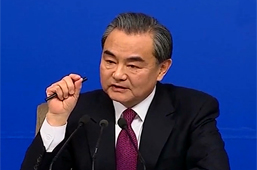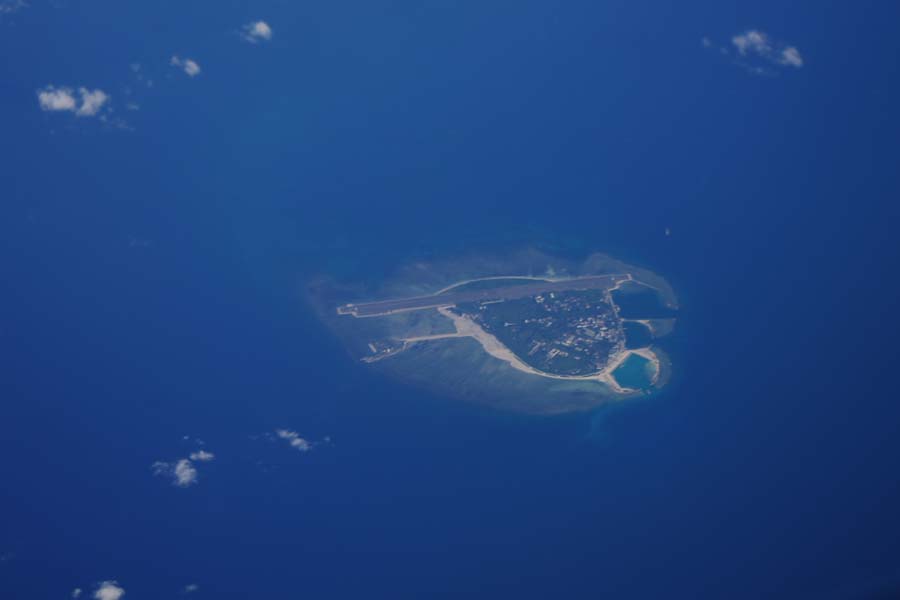Since taking office as the Philippines' Secretary of Foreign Affairs, Mr. Albert F. del Rosario has spared no effort to defame China on all kinds of international occasions and, in that process, managed to enhance his own visibility. On 30 November, at the arbitral tribunal set up at the unilateral request of his country, Mr. del Rosario once again demonstrated to the world his exceptional talent in performance.
At the hearing, Mr. del Rosario went to great lengths to win sympathy for his country by depicting it as a helpless underdog with much grievance. But he made no mention, none whatsoever, of the historical facts of how, over the years, the Philippines encroached upon China's rights and interests in the South China Sea. As a matter of fact, the root cause of his country's dispute with China over the South China Sea is no other than his country's occupation of some Chinese islands and reefs in the South China Sea and its assertion of illegal territorial claims since the 1970s. Neither the international treaties that establish the scope of the Philippines' territory nor the Philippines' own constitution before 1997 includes the Nansha Islands or the Huangyan Island in the country's map. No matter how hard he tries to frame the facts or confuse the concepts, Mr. del Rosario would not be able to cover up the nature of the matter, i.e. the infringement of China's lawful rights and interests by the Philippines.
At the hearing, a scare-mongering Mr. del Rosario made far-fetched accusations against China. His statement of a limited length contained a litany of astonishing yet, alas, totally untrue allegations against China, such as using "the threat of force" against the Philippines, violating international law including UNCLOS and even the UN Charter, building "a Berlin Wall of the Sea", "intentionally" creating "one of the biggest emerging environmental disasters in the world", and "interfering with" the Philippinos' efforts to "promote social progress" and "achieve a better standard of life". One could hardly expect such fabricated and wanton allegations from any respectable foreign secretary.
At the hearing, Mr. del Rosario went so far as to say that the Philippines initiated the arbitration "precisely to preserve that friendship" with China, "a valued friend". Such eloquence is simply awesome. Without giving a prior notice to China, the Philippines initiated the arbitration in a way that can be nicely summed up as "the guilty party filing the suit first." And all this while, the Philippines has protested its innocence. Did Mr. del Rosario actually intend to say that the unilateral initiation of the arbitration is a goodwill gesture to China? While covering up its illegal moves, the Philippines has been vilifying most vigorously China's lawful rights and interests and legitimate activities in the South China Sea. An ancient Chinese sage said, "Great speech is exact and complete; small speech is merely so much talk." All those high-sounding words from Mr. del Rosario cannot gloss over the basic facts of the Philippines infringing on China's territorial sovereignty and maritime rights and interests in the South China Sea. Rather, they give yet another example of the Philippines' twisted logic of "a robber acting like a cop."
State sovereignty is a core principle in contemporary international law. No force is above a sovereign state. No country, organization or individual could expect China to stand by and allow its interests to be harmed. Here is a piece of advice for people like Mr. del Rosario: Don't misread the situation. The Chinese government and people are adamant about safeguarding China's rights and interests in the South China Sea. All calculating moves against that would end up in failure.
Lies could not change the rights and wrongs with regard to the South China Sea. Treacherous schemes won't fool people forever. In his capacity as foreign secretary, Mr. del Rosario has repeatedly made irresponsible remarks and, turning a blind eye to China's goodwill, deliberately hyped up the South China Sea issue in the international arena. Noises about the South China Sea are doing a disservice to peace and harmony in the region. The Philippines, who started the whole thing in the first place, has to bear the blame and Mr. del Rosario certainly has to be held responsible more than many others. China remains willing to handle its dispute with the Philippines with utmost goodwill. But any attempt to interpret China's goodwill with malicious intentions and mislead public opinion will backfire someday. Mr. del Rosario's eye-catching words and deeds may well please some non-regional forces who want to disturb the situation in the South China Sea. Yet at the end of the day, it is the overall interests of the Philippines and its people that are at stake. We urge the Philippines to be realistic as well as responsible, make good on its serious commitments made in bilateral documents with China and the Declaration on the Conduct of Parties in the South China Sea, and seek a solution to its dispute with China over territory and maritime rights and interests through bilateral consultation and negotiation in order to maintain peace, stability and prosperity in the South China Sea.















